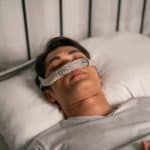In the wake of Brexit, the landscape of business in the UK has changed significantly. Brexit has had a profound impact on economic operations, trade, and industry. It has raised new challenges for businesses, especially startups, as they adapt to new trade and customs regulations and the shifting demands of the market. This article will guide you on how to navigate these changes and create a business plan that caters to the post-Brexit economy.
Understanding the Economic Impact of Brexit
The first step in crafting a business plan that can thrive in the post-Brexit economy is understanding the economic impact of Brexit itself. No longer part of the European Union, the UK has had to redefine its trade relationships, not just with EU member states, but with countries around the world. This has created a new set of rules for the trade of goods and posed a significant challenge to businesses across several industries.
Lire également : How Can UK Pet Supply Stores Capitalize on the Trend of Premium Pet Food?
One of the most affected sectors is the food and hospitality industry. Import tariffs and customs checks have increased the cost of importing food and other goods, impacting the bottom line of many businesses. On top of this, changes in immigration laws have created a labour shortage in the industry. Understanding these shifts is essential in creating a business plan that can successfully navigate the post-Brexit waters.
Adapting your Business Operations
Once you’ve understood the economic impact of Brexit, the next step is to adapt your business operations to these changes. This will involve several adjustments, from sourcing goods locally to slotting in extra time for custom checks in your supply chain. It may also involve changing your pricing strategy to account for the higher cost of importing goods.
Cela peut vous intéresser : What Are the Challenges of Remote Work for UK Businesses and How to Overcome Them?
For startups, the change can be even more profound. Many entrepreneurs have had to rethink their business models completely in the wake of Brexit. For example, in the food industry, some businesses are now focusing more on locally sourced produce to avoid import tariffs. Adapting your business operations is not just about surviving in the post-Brexit economy, but also about finding new opportunities within it.
Navigating Trade and Industry Challenges
Post-Brexit, businesses also need to be prepared to navigate trade and industry challenges. This could range from navigating new customs procedures to understanding the implications of the UK’s new trade deals. It may also involve adjusting your business to cater to changes in industry regulations and standards.
For instance, businesses in the food industry must adhere to new labelling requirements post-Brexit. These may involve additional costs and administrative work. However, with proper planning and by staying updated on changes in regulations and trade deals, businesses can turn these challenges into opportunities.
Leveraging Economic Opportunities
As much as Brexit has brought about challenges, it has also presented several economic opportunities. For instance, the UK is now free to strike its own trade deals, potentially opening up new markets for businesses. As an entrepreneur, you should be proactive in identifying these opportunities and incorporating them into your business plan.
This can involve everything from exploring new markets for your goods to finding innovative ways to deal with the higher costs of importing. For example, businesses can pass on the cost to customers or find ways to cut costs elsewhere in their operations.
Building a Resilient Business Plan
In the end, adapting to the post-Brexit economy is about building a resilient business plan. This involves understanding the economic impact of Brexit, adapting your business operations, navigating trade and industry challenges, and leveraging economic opportunities.
A resilient business plan should be flexible, allowing your business to adapt to changes as and when they occur. It should also involve a certain level of risk management, to account for any potential setbacks due to Brexit.
While Brexit presents a host of challenges, with the right approach, it can also present opportunities. By understanding the changes and adapting your business plan accordingly, UK entrepreneurs can not only survive in the post-Brexit economy but thrive in it.
Remember to stay informed about the changes and be prepared to adapt your business plan as the post-Brexit economy continues to evolve. It’s a brave new world out there, but with careful planning and a resilient mindset, you can turn Brexit’s challenges into your business’s opportunities.
Throughout this article, we’ve tried to provide a comprehensive guide to help you navigate this new economic landscape. We hope you find it useful as you chart your entrepreneurial journey in the post-Brexit era. As always, keep an eye on this blog for more insights and tips on running successful businesses in the UK.
Managing the Long-Term Impact of Brexit on Small Businesses
Understanding the long-term impact of Brexit at the micro-level is essential in creating a comprehensive business plan. Small businesses, in particular, need to assess how the changes will affect their operations and bottom line over time. This will involve close monitoring of the economic environment and being proactive in making necessary adjustments.
The long-term impact of Brexit can be both negative and positive. On the downside, small businesses may find themselves grappling with increased costs due to tariffs and customs checks. This is particularly true for businesses in the food industry, where import costs can significantly affect profit margins. On the upside, Brexit has opened up new opportunities for small businesses, such as the chance to tap into new markets as the UK strikes its own trade agreements post Brexit.
To manage the long-term impact of Brexit, entrepreneurs should consider strategies like sourcing goods locally, which not only reduces costs but also supports local industries and job creation. It’s equally important to be prepared for changes in regulations, such as those concerning personal data protection and labelling requirements.
The keyword here is ** adaptability**. By staying informed about the changing landscape and being ready to adjust their operations accordingly, small businesses can navigate the post-Brexit economy effectively.
The Role of Digital Platforms and Social Media
In the post-Brexit era, digital platforms and social media have emerged as powerful tools for businesses. They offer a cost-effective means to reach a wider market, engage with customers, and even streamline operations. Therefore, incorporating these tools into your business plan is a must.
Digital platforms can help businesses overcome some of the challenges posed by Brexit. For example, an online store can help a small business reach customers not only in the UK but also in the EU and other parts of the world. This can offset the impact of reduced physical trade due to Brexit.
Similarly, social media can be a potent tool for customer engagement and brand building. It allows businesses to communicate directly with their customers, understand their needs and preferences, and tailor their offerings accordingly. It also provides a platform for businesses to stay informed about industry trends and changes in regulations.
Using digital platforms and social media effectively requires a strategic approach. It’s not just about having a presence on these platforms but about using them to drive business growth. This calls for a clear understanding of your target audience, a well-defined content strategy, and regular monitoring of your performance.
An important point to remember when using these platforms is the need to comply with data protection laws, especially when handling personal data of customers in the EU. Businesses should ensure they have a clear understanding of these laws and have systems in place to protect customer data.
Conclusion
Brexit has undoubtedly ushered in a new era for businesses in the UK. The post-Brexit economy presents many challenges, from dealing with new trade and customs regulations to adapting to changes in the labour market. However, it also brings about new opportunities, such as the potential to tap into new markets and leverage digital platforms for business growth.
The key to navigating this new landscape lies in understanding the economic impact of Brexit, being adaptable, and creating a flexible business plan that can weather the changes. It involves being proactive in identifying new opportunities and being resilient in facing challenges.
Remember, adaptability and resilience are crucial to surviving and thriving in the post-Brexit economy. Stay informed, be prepared to adjust your business plan as necessary, and seize the opportunities that come your way. The post-Brexit world might be daunting, but with the right approach, it can also be a landscape of opportunity.
As you prepare to navigate the post-Brexit economy, remember to meet our team for further assistance and guidance. Stay tuned to our blog for more insights on running successful businesses in the UK. The journey may be challenging, but with the right plan, it can lead to exciting possibilities and long-term growth.






